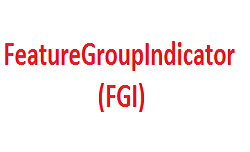Multi Carrier Cell Re-selection in LTE
Cell Re selection is a procedure used to change the cell after the UE is camped on a cell and stays in the Idle mode.This procedure is used to let the UE get camped on a cell which has the best radio conditions among all the other cells on which the UE is allowed to camp on.
Cell reselection is done by first checking the :
- PRIORITY
- RADIO LINK QUALITY
- CELL ACCESSIBILITY
PRIORITY
This is a parameter specifying the priority of EUTRA-FA(Evolved Universal Terrestrial Radio Access-Foreign Area) during idle re-selection or mobility control information.
LTE cell re-selection uses priority based levels starting from 0 to 7 as per 3GPP 36.331 where Priority 0 is Lowest and Priority 7 is highest. This value can be seen in SIB3 as cellReselectionPriority Information Element (IE).
An example is shown for a multi carrier vendor is shown as below. The operator has 3 carrier 2300 MHz, 1800 MHz and 850 MHz which different Bandwidth. The Priority here is decided based on the channel bandwidth, highest channel bandwidth is given highest re-selection priority.
| Frequency | PRIORITY |
| 2300(20MHz) | 7 |
| 1800(5 MHz) | 5 |
| 850(10MHz) | 6 |
CELL SELECTION
UE performs cell selection based on RSRP level as per 3GPP Rel 8 or consider both RSRP and RSRQ level as per 3GPP Rel9.
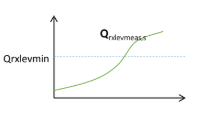
The criteria for cell selection is that the Srxlev > 0 [Definition and details about Srxlev is available in the table below].
| Parameter | Information | Settings |
| Q_RX_LEV_MIN | This parameter is minimum RX level required in a cell that is operating as EUTRA-FA and its unit is dBm (measured RSRP). Value is found in SIB 1 , SIB3 and is Calculated as Value in dBm/0.5 | -128 dBm ( IE value in SIB 1 is -64 ) |
| Q_RX_LEV_MEAS | Measured cell’s RX Level value(RSRP) | |
| SRXLEV | Cell selection RX level value (in dB) measured by UE | Srxlev=Qrxlevmeas-Qrxlevmin(-128) Example Cell selection Criterion: Srxlev>0 RSRP(Qrxlevmeas)>Qrxlevmin(-128) |
| T_RESELECTION | This parameter is the interval (timer) of reselection execution. | 1 sec |
| Q offset | Offset applicable to a specific neighboring cell used for evaluating the cell as a candidate for cell re-selection. | |
| QHyst | The parameter QHyst is introduced to prevent from ping pong re-selections | 2dB |
The role of Hysteresis can be illustrated as follows
Case 1:
Hysteresis=0 dB, Measured value is fluctuating around the target value causing a lot of unnecessary measurement report

Case 2:
Hysteresis= 2dB, Even though the measured value is fluctuating around the target it does not trigger measurement report unless it fluctuates wider than hysteresis(Pink).

Cell Re-selection for Intra Frequency Parameters
- S_INTRA_SEARCH:nThis parameter is the threshold value for intra-frequency measurement i.e it is used to trigger intra frequency measurements Actual value in dB is obtained by multiplying by 2.Corresponds to parameter s-IntraSearch specified in SIB3 Settings:31 ,62dB
Measurement rules for intra frequency cell re-selection
- Serving_Srxlev > Sintrasearch – Do not perform intra frequency measurement for example: If measured RSRP of the serving cell is -80 dBm
- Then Srxlev=-80 + 128= 48 [ Srxlev = Qrxlevmeas – Qrxlevmin (-128)]
- Srxlev is 48 which is >31 (Sintrasearch Value) Do not perform intra frequency measurement
- Serving_Srxlev <=Sintrasearch -Perform RSRP measurement for example :If measured RSRP of the serving cell is -100 dBm
- Then Srxlev=-100+128=28
- Srxlev is 28 which is <31 (Sintrasearch Value)
Perform intra frequency RSRP measurement and Condition for reselection:
RSRP Serving Cell+Qhyst< RSRP Neighbor cell -Qoffset during Treselection
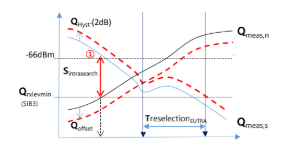
Here Qmeas,n is RSRP Neighboring cell Qmeas,s is RSRP Serving cell. UE needs to camp on the current serving cell over 1 sec(T_RESELECTION)
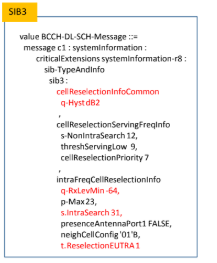
Cell Reselection for Inter Frequency
- S_NON_INTRA_SEARCHThis specifies the Srxlev threshold (in dB) for E-UTRAN inter-frequency and inter-RAT measurements.Actual value of threshold is the value * 2 (dB).
| Frequency | settings(IE value) | Formula | Calculated Value |
| 2300 | 10 | Serving_Qrxlevmin -64 (SIB3) X 2 + Snonintrasearch 10 (SIB3) X 2 |
-128+20=-108 dBm |
| 1800 | 12 | Serving_Qrxlevmin -64 (SIB3) X 2 + Snonintrasearch 12 (SIB3) X 2 |
-128+24=-104 dBm |
| 850 | 12 | Serving_Qrxlevmin -64 (SIB3) X 2 + Snonintrasearch 12 (SIB3) X 2 |
-128+24=-104 dBm |
Example
- ServingCell<=Snonintrasearch (10*2=20) +Serving_qrxlevmin (SIB3,-64,-128 dBm) =-108 dBm
- Serving cell RSRP<=-128+20=-108 dbm
UE performs target cell EUTRAN frequency measurement
- THRESHX PARAMETERS: ThreshX parameters are used in LTE for idle mode cell reselection towards a different LTE Frequency .We have 2 parameters ThreshXlow and ThreshXHigh .The 2 parameters relate to the target cell.
- ThreshXHigh: The threshold used in the UE to reselect a frequency whose priority is higher than the current camped frequency.If the user has to move from a low priority LTE frequency band to higher priority LTE then the neighbor/ target LTE must have the Srxlev>ThreshXHigh.Settings 12/14
Priority of the Target Cell is higher than the serving cell
Example 1: Serving cell Priority (6) <Neighbor cell priority (7)
- Measurement Neighbor cell priority>Serving cell priority =Always perform inter frequency measurement
- Condition for cell reselection: RSRP Neighbor /Target cell > target_qrxlevmin (SIB5,-64,-128 dBm) + threshXHigh (SIB5,14,28 dB) =-100 dBm
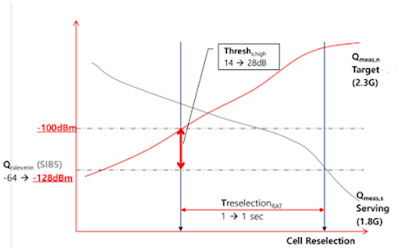
- Thresh_Xlow:This specifies the Srxlev threshold (dB) used by the UE on the serving cell when re-selecting towards a lower priority inter-RAT frequency (SIB3)
Example Settings
| Frequency | Example IE value | Formula | Calculated Value |
| 2300 | 10 | Serving_Qrxlevmin -64 (SIB3) X 2 + ThreshServingLow 10 (SIB3) X 2 |
-128+20=-108 dBm |
| 1800 | 12 | Serving_Qrxlevmin -64 (SIB3) X 2 + ThreshServingLow 12(SIB3) X 2 |
-128+24=-104 dBm |
| 850 | 12 | Serving_Qrxlevmin -64 (SIB3) X 2 + ThreshServingLow 12 (SIB3) X 2 |
-128+24=-104 dBm |
This value is found in SIB 5 .If the user has to move from a high priority band to a low priority band then the target low priority band must have theSrxlev greater than Thresh_Xlow. The threshold used to re-select low-priority frequency from high-priority frequency.
Priority of the Target Cell is lower than the serving cell
Current Cell priority (7)<Target Cell Priority(6)
Assumption:Serving Cell:2300MHz,Target Cell:850MHz
Measurement
- Serving Cell<=Snonintrasearch(12*2=20)+Serving_qrxlevmin(SIB3,-64,-128 dBm)=-108dBm
- Serving cell RSRP<=-128+20=-108dbm
- UE performs target cell EUTRAN frequency measurement
Cell Re-Selection Both conditions have to be met
- Serving Cell’s RSRP < THRESH_SERVING_LOW (10,10*2=20)+ serving_qrxlevmin (SIB3,-64,-128 dBm)=-108dBm
- Neighbor/Target cell RSRP > ThreshX,Low (10,10*2=20)+Target_qrxlevmin (SIB5,-64,-128 dBm) =-108dBm
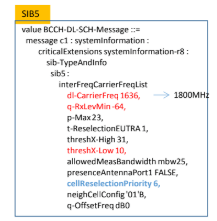
Article is submitted by Prajna Poojari (Senior LTE & VoLTE RNPO Expert)

Related Post
- LTE Cell Camping and Selection Procedure
- LTE Channels: Logical, Transport and Physical Channels Details and Mapping
- Hybrid Automatic Repeat Request (HARQ) in LTE FDD
- LTE eNodeB Schedulers and Different Scheduling Types
- LTE EUTRAN Bands
- Feature Group Indicators (FGI bits) in LTE Rel. 8, Rel. 9, Rel. 10

